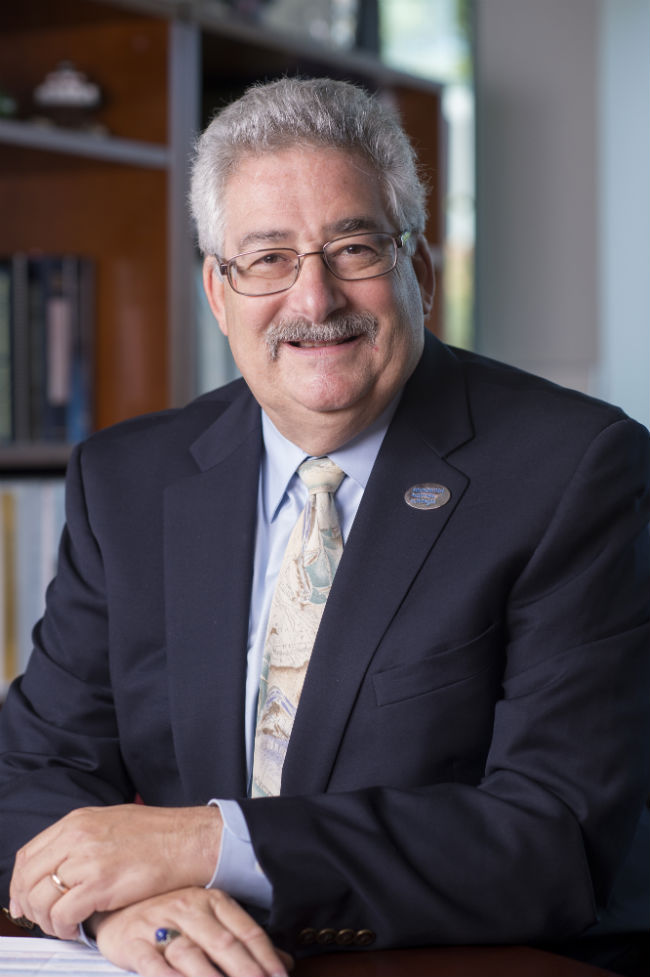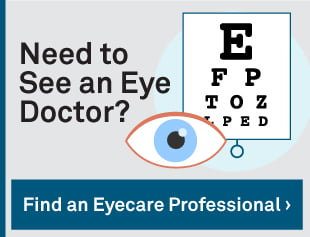Do you ever wonder what it’s like to do something else for the day? Whether it’s choosing a different career path or stepping out of your comfort zone, this series dives into the crazy-interesting lives of those we’ve always admired. From pilots and chefs to charities making a difference, go ahead and read a page in their life.
Today’s A Page In Your Life post is all about Dr. Steve Rose, the Chief Research Officer for Foundation Fighting Blindness. Foundation Fighting Blindness is an organization that strives to find preventions, treatments, and cures for the full spectrum of retinal degenerative diseases that cause blindness and loss of vision. Read on for Dr. Rose’s tips on eye health, preventative care, and his personal connection with the great mission of his foundation! We know you’ll be inspired by his story.

To start, could you tell us a little about yourself? What’s your backstory?
Dr. Rose: I have always been fascinated by science and was without a doubt a “geek” from a very young age. I built my own stereo and had one of those chemistry sets. I collected many animals and brought them home, much to the dismay of my mother. But, she put up with it, and I watched tadpoles grow into frogs and caterpillars turn into butterflies. This curiosity stayed with me and led to my continuing pursuit of science, my undergrad degree in Biology, and my doctorate in Microbiology and Molecular Immunology. Today, I continue to explore all sorts of biological interests and really enjoy wildlife photography, especially birds, including raptors.
What led you to work in the field of retinal research?
Dr. Rose: I have two main reasons for my interest in retinal research. One, is that I have a relative who is blind from X-linked retinitis pigmentosa, and two, is that macular degeneration runs in my family. My ability to bring my knowledge to the Foundation Fighting Blindness’ pursuit of treatments and cures feels personal.
What does a typical day look like for a Chief Research Officer? (Or is there even a “typical day”?)
Dr. Rose: Certainly, like all jobs, there is routine work that has to be done — the typical administrative work just to keep the enterprise running. But every day does bring a new opportunity, whether it is reading about a new scientific finding that could have an impact on our work, or talking with a parent of a newly diagnosed child to answer their questions and ensure there is hope. I always relay to parents that major advances are being made to find the preventions, treatments and cures patients need. I let them know that the Foundation Fighting Blindness, with the researchers and clinicians we support throughout the world, is working day and night to move promising therapies to the clinic as fast and as safely as possible.
What motivates you in your commitment to finding treatments and cures for retinal diseases?
Dr. Rose: As I said, it is personal for me due to a family member who is blind from an inherited rare retinal degeneration disease. But that’s not all, it’s the affected individuals, their families, and my personal mission, as well as the Foundation Fighting Blindness’ mission, to do everything we can to prevent anyone from losing their vision due to these diseases.
What’s your proudest accomplishment from your time at Foundation Fighting Blindness?
Dr. Rose: Even though the Foundation Fighting Blindness’ support for the many years of research leading to the successful Leber’s congenital amaurosis gene therapy clinical trials started before my time, the fact that the clinical trial was supported while I was in charge of the science team here at the Foundation is highly gratifying. A lot of research I did in school was on gene therapy, and to see this approach successfully restore useful vision to so many individuals is the culmination of a dream I have had for many years.
In light of National Healthy Vision Month (May), what advice would you give our readers on how to protect their eyes from vision problems?
Dr. Rose: There are three things that everyone should do to protect their eyes:
- Eat properly, including leafy green vegetables. Remember what’s good for your heart is good for your eyes.
- Wear UVA and UVB blocking sunglasses and a wide brimmed hat in bright light. Unfiltered, very bright sunlight can cause damage to the retina if there is prolonged exposure.
- Get yearly eye exams. Early detection of retinal degeneration is essential in prevention!
Why should we make our eyes a priority in terms of healthcare?
Dr. Rose: Just think about your daily life and how much you rely on your vision. Try doing your daily routine with a mask on, and then you will understand what it is like to lose your vision.
We are a reading glasses store, so we have to ask: What is your favorite pair of glasses from Readers.com?
Dr. Rose: This is a nostalgic walk in the past, I must say. I still have the picture of my mother in her cat-eye glasses, and it is one of my favorite photos of her. Remember, I am a child of the ‘50s, so while they may not be as popular today, these cat-eye glasses bring back so many wonderful memories.
Browse Dr. Rose’s favorite cat-eye shapes here!
Thank you to Dr. Rose for taking the time to answer our questions! We’re inspired by the positive mission of Foundation Fighting Blindness!






0 Comments